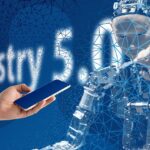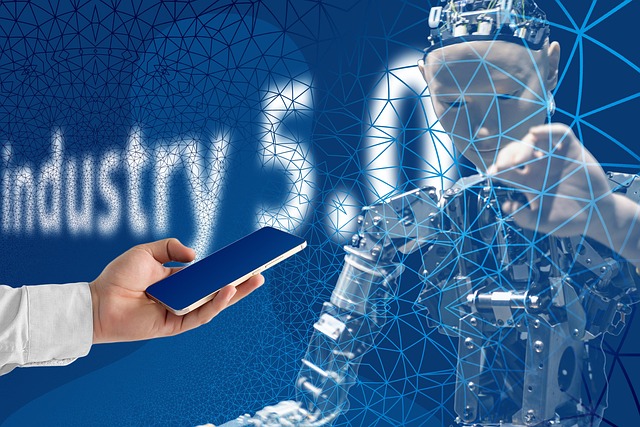# AI Advances: Exploring the Impact of Intelligent Technologies on Our Lives and Future Directions
Artificial Intelligence (AI) has emerged as one of the most transformative technologies of the 21st century. It has infiltrated various sectors, reshaping industries, enhancing productivity, and altering the very fabric of daily life. As intelligent technologies continue to evolve, it is crucial to explore their impact on our lives and consider the future directions they may take.
## The Current Landscape of AI Technologies
Recent advancements in AI have been characterized by breakthroughs in machine learning, natural language processing, and computer vision. Machine learning algorithms, particularly deep learning, have enabled computers to process vast amounts of data and learn from it, leading to improved decision-making capabilities. For instance, AI-driven applications in healthcare can analyze medical images with remarkable accuracy, assisting radiologists in diagnosing conditions earlier and more efficiently.
Natural language processing has also seen significant advancements, making it possible for machines to understand and generate human language. Virtual assistants like Siri, Alexa, and Google Assistant have become integral parts of many households, showcasing the ability of AI to facilitate communication and perform tasks through voice commands. These technologies not only enhance convenience but also contribute to accessibility for individuals with disabilities.
Moreover, the realm of computer vision has transformed industries such as automotive and security. Self-driving cars utilize AI to interpret their surroundings, making real-time decisions that enhance safety and efficiency. In the security sector, facial recognition technology has been adopted for surveillance and identification, sparking discussions about privacy and ethical implications. The integration of AI into these critical areas illustrates its pervasive influence on our daily lives.
## Societal Implications of AI Integration
Shifting focus to the societal implications, the integration of AI technologies raises both opportunities and challenges. On one hand, AI has the potential to drive economic growth by automating routine tasks, thus freeing up human workers for more complex and creative endeavors. This shift could lead to increased productivity and innovation, fostering a more dynamic job market.
Conversely, concerns about job displacement are prevalent. As AI systems become capable of performing tasks traditionally executed by humans, industries may face significant workforce disruptions. The World Economic Forum has projected that millions of jobs may be lost to automation, particularly in sectors such as manufacturing and customer service. Addressing this challenge necessitates proactive measures, including reskilling and upskilling initiatives to prepare the workforce for the changing job landscape.
Additionally, the ethical implications of AI cannot be overlooked. Issues surrounding bias in AI algorithms, data privacy, and accountability are critical considerations as these technologies continue to advance. Instances of biased AI outcomes have highlighted the need for transparency in algorithmic decision-making processes. Organizations must prioritize ethical AI development to ensure that these technologies serve all segments of society fairly.
## Future Directions: Navigating the AI Frontier
Looking ahead, the future of AI holds immense promise, but it also requires careful navigation. One area poised for growth is the development of explainable AI (XAI). As AI systems become increasingly complex, understanding their decision-making processes becomes vital. XAI aims to create models that not only provide accurate predictions but also offer insights into how those predictions were reached. This transparency can enhance trust among users and stakeholders, fostering broader acceptance of AI technologies.
Moreover, the intersection of AI with other emerging technologies, such as the Internet of Things (IoT) and blockchain, presents exciting possibilities. The IoT enables the collection of vast amounts of data from interconnected devices, while AI can analyze this data to derive actionable insights. This synergy can lead to smarter cities, improved supply chain management, and enhanced environmental monitoring.
Furthermore, the role of AI in addressing global challenges cannot be underestimated. From climate change to healthcare disparities, AI has the potential to contribute solutions that promote sustainability and equity. For instance, AI-driven predictive analytics can optimize resource allocation in disaster response efforts, ensuring timely assistance to affected populations. As such, the responsible application of AI technologies can play a crucial role in shaping a better future for humanity.
## Conclusion: Embracing a Collaborative Future
In summary, the advances in AI technologies have already begun to reshape our lives in profound ways. While the current landscape showcases remarkable achievements, the societal implications and ethical considerations surrounding AI integration must be addressed thoughtfully. As we look to the future, fostering collaboration between technologists, policymakers, and the public will be essential in harnessing the full potential of AI while mitigating its risks.
Ultimately, a balanced approach that prioritizes ethical development, transparency, and inclusivity will ensure that intelligent technologies serve as a force for good. By navigating the AI frontier with care and foresight, we can embrace a future where artificial intelligence enhances our lives, drives innovation, and addresses the pressing challenges of our time. The journey of AI is just beginning, and its impact will undoubtedly continue to unfold in ways we have yet to imagine.











